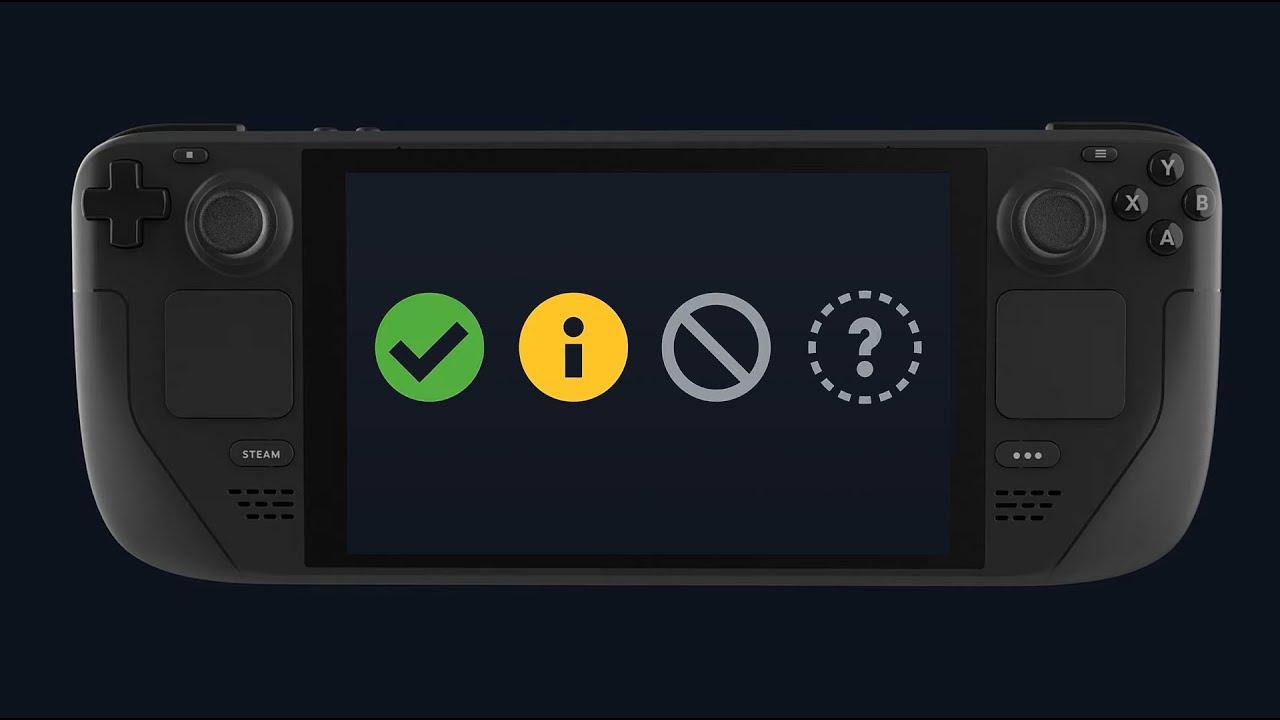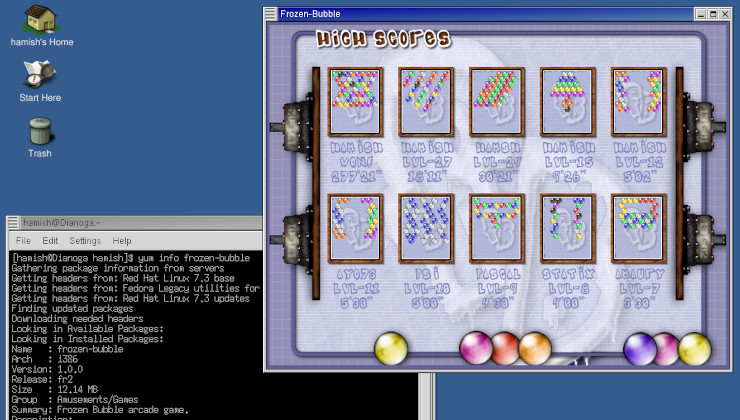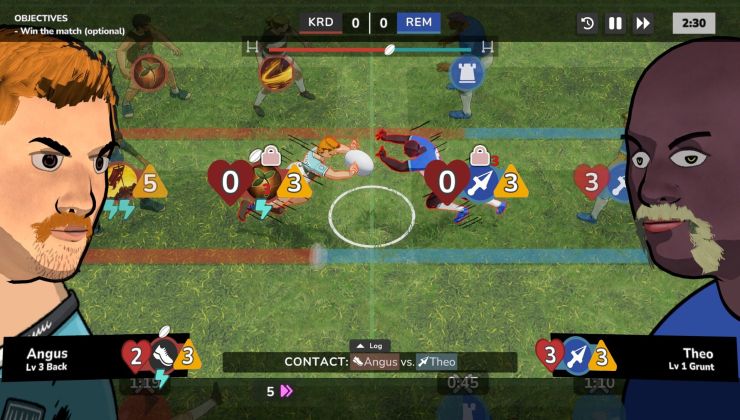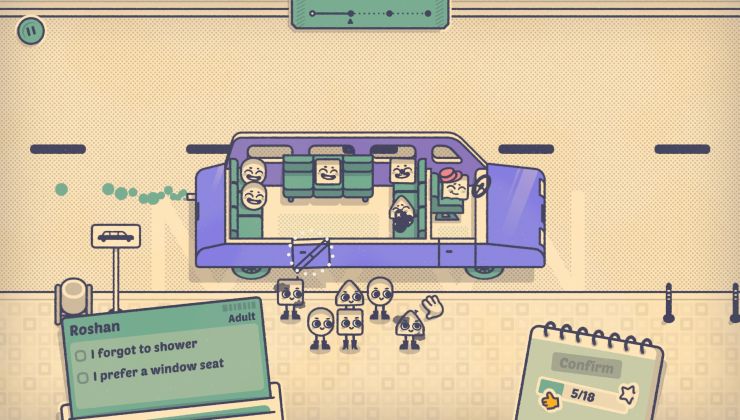We've been wondering what Valve had planned to show off Steam Deck compatibility for games and now they've launched Deck Verified as their answer.
Valve say they are reviewing the entire Steam catalogue on the Steam Deck, with each of them gaining a category that it falls under that will show up across Steam from the store to your own Steam Library. The ratings will be split across Verified, Playable, Unsupported and Unknown. This is good because there's a lot of reasons why games will mix between perfect and unplayable on Steam Deck and the Arch Linux-based SteamOS it ships with.
To be actually Verified the games need to hit these four points:
- Input - The title should have full controller support, use appropriate controller input icons, and automatically bring up the on-screen keyboard when needed.
- Display - The game should support the default resolution of Steam Deck (1280x800 or 1280x720), have good default settings, and text should be legible.
- Seamlessness - The title shouldn’t display any compatibility warnings, and if there’s a launcher it should be navigable with a controller.
- System Support - If running through Proton, the game and all its middleware should be supported by Proton. This includes anti-cheat support.
When you're playing on a Steam Deck, the first tab in the Steam store will also only highlight games that are "great" on the Steam Deck too.
Check out their video explainer below:

Direct Link
Want to see what their plan is? You can check it out on Deck Verified.
Valve also put up a Steam Deck Compatibility Review Process guide, which goes over the steps required for developers to take a look at. It gives an interesting insight into exactly what Valve and developers will be doing. Developers however will not be able to remove their game from being listed as Valve say the Deck is "an extension of Steam onto a new portable PC form factor, and so customers both expect and have access to the same store and library that they would on any other PC".
Nice, sounds like a valve curated protondb.Or like what the SteamOS compatible / couch gaming should have been.
Valve made it pretty clear they are ultimately the ones who make the ratings.
This will going to take a while then, giving "how few games" they have on the store so there's a possibility that we only really see those ratings mostly from famous ones, unless Valve has some kind toolkit to at least partially automate the process.
As long as they don't stagnate as they did with their "white list", I actually prefer they to be responsible for the ratings.
Imagine you never ever thought about releasing your game outside a traditional Windows environment and now the #1 distribution platform is telling you: "hey, we have this new handheld device that's running a totally different OS, and we're putting a mark of shame on your game should it not work well on that".
Good point, this could open the possibility of developers requesting to "opt-out" the review process, claiming that this will give "bad PR" to their games, or making Valve to only show this evaluation system for those running the client on deck / linux (and hiding completely from windows users for example).
Good point, this could open the possibility of developers requesting to "opt-out" the review process, claiming that this will give "bad PR" to their games, or making Valve to only show this evaluation system for those running the client on deck / linux (and hiding completely from windows users for example).Valve have already said that developers can't opt out.
I believe my game isn't a good fit for Deck. Can I stop my game from showing up in the Deck store and library?
Removing products available on Steam from the Deck store or library isn't a supported feature. The Deck is an extension of Steam onto a new portable PC form factor, and so customers both expect and have access to the same store and library that they would on any other PC.
While it's possible for players to hook up a keyboard or a monitor, we believe most customers will be treating the Deck like a handheld appliance, most of the time. Because of this, one of the goals of the Verified badge Verified on Deck badge is helping customers easily understand how well any game plays with just the standard Deck hardware configuration and no peripherals.
Though this may be the most common customer use case, it isn't the only one. As with Steam in general, rather than completely restricting access to some products, we want to enable customers to find the right products given their specific goals and desires.
All Steam games are going to be visible from the Deck, and all (once they've been tested) will show how well Valve thinks they'll work on the Deck, with those that work well getting additional visibility.
They haven't said (AFAIK) that the "mark of shame" is coming to the desktop client, but they have said that they want it to all be different views of the same data (rather than BPM which was an entirely different product), and they really want every game that's at all possible to run well on Linux so there's no incentive for them to shy away from chivvying along those devs that are dragging their heels.
Valve made it pretty clear they are ultimately the ones who make the ratings.
This will going to take a while then, giving "how few games" they have on the store so there's a possibility that we only really see those ratings mostly from famous ones, unless Valve has some kind toolkit to at least partially automate the process.
As long as they don't stagnate as they did with their "white list", I actually prefer they to be responsible for the ratings.
There are several ways it can be queued for evaluation. Perhaps the most important thing is the developer can manually request a review. Valve will provide feedback, the developer can fix the problems and re-request an evaluation. Since games with verified status will get another place to show them, I assume that most will want to take advantage of it.
According to their FAQs, they expect the game to be evaluated within a few weeks of being queued up.
Valve have already said that developers can't opt out.Thanks for clarifying
They haven't said (AFAIK) that the "mark of shame" is coming to the desktop clientPersonally I think they'll have to, just imagine someone buying a Deck only to discover latter that the game you have doesn't work with it, because not stating that the game won't run on it could open a grey area of lawsuits claiming "false advertising".
While I believe this is no problem for Valve itself (putting the mark of shame outside the deck), I expect some publishers to not like this decision and can result in some lawsuit or they leaving steam because of that.
SteamOS can run this gameWhat do they mean by this concept?
Native? Proton? WHAT?
There are several ways it can be queued for evaluation. Perhaps the most important thing is the developer can manually request a review. Valve will provide feedback, the developer can fix the problems and re-request an evaluation. Since games with verified status will get another place to show them, I assume that most will want to take advantage of it.Even so, there are literally thousands of games on steam, and manually reviewing them will take a lot of time. Remember that this situation is different from something unofficial like Protondb, because this seal is Valve officially stating how well the game runs on deck so they can't mess up with it.
According to their FAQs, they expect the game to be evaluated within a few weeks of being queued up.
So… In other words, Valve acknowledges that their "all your library should work" and "no porting required" promises are not feasible.
I don't think it was ever meant as anything more than a marketing bait. A good one for our cause, but did you ever take it literally? To put it in more realistic terms, replace "all" with "many".
Last edited by Shmerl on 18 Oct 2021 at 10:31 pm UTC
Personally I think they'll have to, just imagine someone buying a Deck only to discover latter that the game you have doesn't work with it, because not stating that the game won't run on it could open a grey area of lawsuits claiming "false advertising".
I fully expect that after all the UI updates have been rolled out, the Verified mark will be shown on the desktop Store, and will be a filter that customers can apply just like the others. They just haven't said that will definitely be the case, again AFAIK. Good for customers, and of huge strategic importance to Valve.
While I believe this is no problem for Valve itself (putting the mark of shame outside the deck), I expect some publishers to not like this decision and can result in some lawsuit or they leaving steam because of that.
I fully expect that Valve's response would be "good luck with that." Politely, of course.
I do really hope that they get buy-in from the game devs. There's a window between failing the tests and the results of the tests being put up where Valve send an email to the developers saying "fix your shit." It would really suck to have a game that has the mark, loses the mark, then a couple of weeks later gets the mark back again. The only way to avoid that situation is for devs to properly test things themselves (which Valve are clear that they should do) before they push any updates. It still remains to be seen whether enough of them actually will.The only thing that's not clear is who will evaluate if each game meets the requirements: The consumers, the developers or (most unlikely) Valve itself?Valve made it pretty clear they are ultimately the ones who make the ratings.
SteamOS can run this gameWhat do they mean by this concept?
Native? Proton? WHAT?
It doesn't matter. Atleast to the end user. It might matter to us, because we like to know these things and tinker... But on a "I want to play a game" level, it doesn't really matter what framework it uses.
I'm pretty sure that's the point.
I fully expect that Valve's response would be "good luck with that." Politely, of course.I second that, but I also expect someone making some noise before.
Valve don't particularly care either way. They're taking away the "compatibility tool" popup, at least on the Steam Deck, that we've previously had when first running a game through Proton. As much of the Steam catalogue as at all possible, running well on Linux, by hook or by crook, is the objective from Valve's point of view. There'll probably still be the SteamOS icon (but not Tux) for native games, I expect.SteamOS can run this gameWhat do they mean by this concept?
Native? Proton? WHAT?
Also, it's somehow the revenge of the superior 16:10 resolution the damn TV/movies industry so cold-bloody killed. 8-)
Last edited by sudoer on 19 Oct 2021 at 2:11 am UTC
Last edited by Shmerl on 19 Oct 2021 at 2:10 am UTC
Before worrying about the 100% compatibility mark, I would try to get the same tests on Windows 10-11 with Windows games... It might be lower than 90%.FYI [Batman: Arkham Asylum GOTY](https://store.steampowered.com/app/35140/Batman_Arkham_Asylum_Game_of_the_Year_Edition/) works on Windows 11. I just tested it.
Ex: My son was never able to run Batman Arkham Asylum on Windows... I did with Proton.
I mean... 100% support doesn't exist, even on Windows, so...
Very cool article and approach Valve is taking in my opinion. 100% compat was never realistic and I don't think they should have ever implied that. Being able to check my Steam Library for compatibility is a big plus. I look forward to that.
Overall, I think this could be a big positive for gaming period in addition to mainstreaming Linux gaming.
I'm counting on Steam Deck to skyrocket Linux usage, or at least to bring more games to linux based OS
I don't see that happening at all. There is a better chance of customers installing Windows on the Steam Deck than that happening. Proton has shown that it will only lower the amount of native Linux titles being made not increase it.
The chosen terms are not very clear to me.
"Verified, Playable, Unsupported and Unknown"
Is "Playable" better or worse than "Verified"? What does "verified" even mean? It could mean it has been verified as not working.
"Unsupported", ok, but it doesn’t tell if it’s working or not.
"Unknown" is of course not helping much either.
I’m not asking for the answers, just saying they should choose terms that immediately make sense.
I checked the compatibility page, the french terms seemed more clear to me than the english ones. Nice job translaters
I don't see that happening at all. There is a better chance of customers installing Windows on the Steam Deck than that happening. Proton has shown that it will only lower the amount of native Linux titles being made not increase it.
Chances of customers installing any OS on Steam Deck? Pretty low and not likely to ever be high - it's same with installing an OS anywhere really.
Chances of developers releasing something for Linux becasue of Steam Deck? Depends on the marketing I guess, but they can get pretty good and way higher than the above for sure.
Last edited by Shmerl on 19 Oct 2021 at 4:10 am UTC










 How to set, change and reset your SteamOS / Steam Deck desktop sudo password
How to set, change and reset your SteamOS / Steam Deck desktop sudo password How to set up Decky Loader on Steam Deck / SteamOS for easy plugins
How to set up Decky Loader on Steam Deck / SteamOS for easy plugins
See more from me